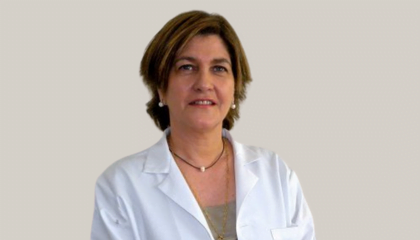Are you suffering from endometriosis and looking for a specialised gynaecologist in Barcelona?
It is estimated that around 15% of women, or one in seven, are affected by endometriosis. This complex and progressive pathology, which is characterised by intense pain and sometimes fertility problems, can nevertheless be well controlled and treated, if it is properly managed.
Because this gynaecological disease is still under-diagnosed, we are pleased to be able to count on a team of specialised gynaecologists who will be able to offer you personalised and caring care.
If you suffer from endometriosis or think you do, do not wait to make an appointment with one of our gynaecologists in Barcelona.
Fast track your treatment
To book an appointment or speak with one of our friendly team, please get in touch using the options below

What is endometriosis?
Endometriosis is a chronic gynaecological disease characterised by the presence and proliferation of endometrial tissue, which is normally found in the uterus or in other areas outside this cavity.
Endometriosis can affect different organs:
- The uterus: adenomyosis
- The ovaries: endometriomas or endometriotic cysts
- The uterine tubes
- Uterine ligaments
- Digestive organs
- Colon or small intestine
- Cervix, vagina or vulva
- The bladder and ureters
Endometriosis is a benign disease in the medical sense of the term, i.e. it is not life-threatening, but it can be extremely painful and some forms can disable the daily lives of those affected and constitute an invisible handicap.
What are the symptoms of endometriosis?
The main symptom of endometriosis is pain during menstruation, combined with pain during sexual intercourse, chronic pelvic pain, or pain when urinating or defecating.
Endometriosis also often leads to chronic fatigue and symptoms of irritable bowel syndrome (abdominal pain, bloating and bowel problems). It can also lead to fertility problems.
We care for Women.
Our specialists offer obstetrics and gynecologic care for women through all phases of life, from your pre-teen years to post-menopausal years.

How is endometriosis diagnosed?
The gynaecologist's questioning of the patient always provides important information to guide the diagnosis: pain during menstruation, during sexual intercourse, digestive problems, are very significant for a diagnosis of endometriosis.
This information leads the gynaecologist to prescribe various tests:
- Pelvic ultrasound
- MRI
- Hysterography
- Endorectal ultrasound
- Colonoscopy
These examinations help to define the location of the endometriosis and the organs affected.
What are the treatments for endometriosis?
Endometriosis decreases (and usually disappears) after the menopause. While waiting for the menopause, several treatments can be offered to women with this condition.
The basic treatment consists of preventing the onset of menstruation: this is called amenorrhea. Thanks to the suppression of menstruation and therefore the disappearance of bleeding from the endometriosis lesions, the pain is reduced or disappears and the lesions regress. Thus, giving a continuous pill or inserting an IUD that releases hormones allows some women to stop suffering and live normally.
When this is not enough, it is advisable to start artificial menopause treatments of varying lengths, which should be accompanied by additional treatment to alleviate the side effects associated with the menopause (bone pain, hot flushes, dry skin, mood disorders, etc.).
Our English-speaking gynaecologists specialising in endometriosis


